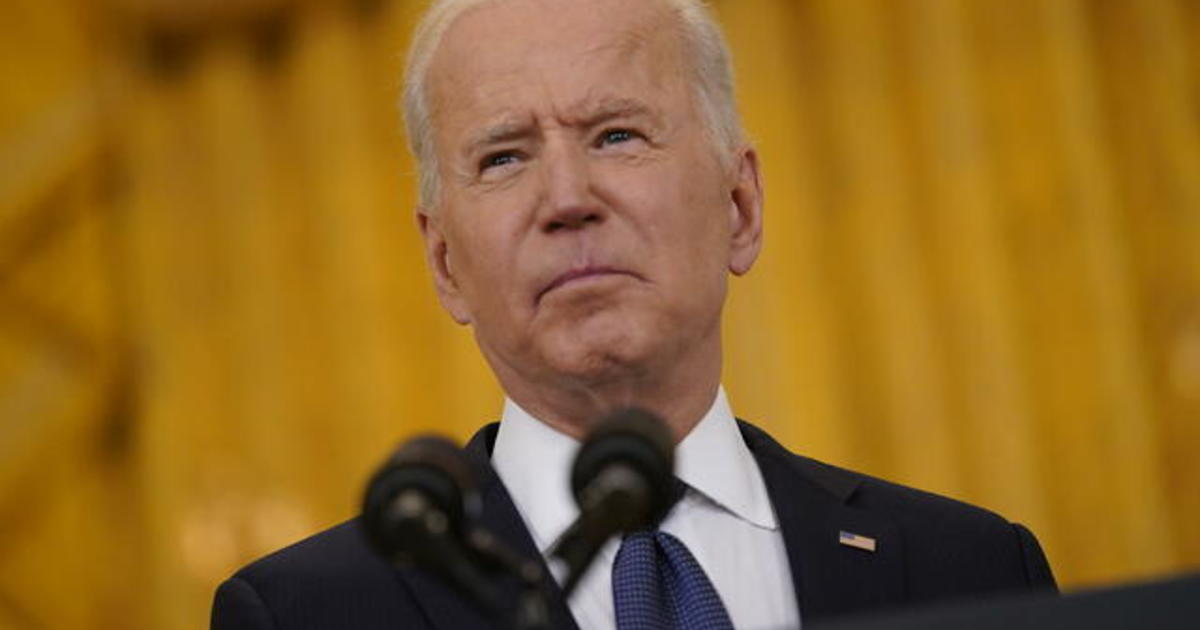
President Biden will turn his attention to a bipartisan group of senators preparing their own infrastructure proposal in his negotiations with Congress, after talks between the White House and several Republican senators crumbled.
Mr. Biden’s decision came after several conversations with Senator Shelley Moore Capito, the lead Republican negotiating with the White House, but prospects for a deal were dim after two unfruitful discussions last week. A team led by Republican Senator Mitt Romney had been working on an alternative to the offer by Capito’s group as a backup in case its talks with the White House foundered.
An administration official told CBS News that Mr. Biden asked Capito’s group whether they would be willing to significantly increase their offer, which was $928 billion over five years, with $257 billion in new spending. The president had previously lowered his offer from $2.3 trillion to $1.7 trillion. Capito offered an additional $50 billion in spending in a conversation with Mr. Biden on Friday, which the president rebuffed.
Funding has been a sticking point in the ongoing negotiations between Republicans and the White House. Mr. Biden has proposed raising the corporate tax rate from 21% to 28%, which has been outright rejected by Republicans, who are unwilling to touch the 2017 tax cuts law signed by former President Trump. The Republican group had suggested using funds from previous coronavirus relief measures to pay for the bill, but the White House has turned this down and also opposes the idea of user fees.
In a meeting with Capito in person at the White House last Wednesday, the president emphasized portions of his plan that would be funded through corporate taxes, for instance, a 15% minimum tax on the nation’s most profitable companies. However, although this approach could leave the 2017 tax cuts intact, it might not satisfy Republican lawmakers, who may view it as an unnecessary tax hike.
In a statement on Tuesday, Capito said that she was “disappointed by his decision” to end negotiations.
“Throughout our negotiations, we engaged respectfully, fully, and very candidly — delivering several serious counteroffers that each represented the largest infrastructure investment Republicans have put forth,” Capito said. “Despite the progress we made in our negotiations, the president continued to respond with offers that included tax increases as his pay for, instead of several practical options that would have not been harmful to individuals, families, and small businesses.”
Capito added that Biden’s decision “does not mean bipartisanship isn’t feasible,” noting that the Senate Environment and Public Works Committee had approved several bipartisan pieces of infrastructure legislation recently.
It is unclear whether Mr. Biden will be able to reach a deal with the bipartisan group, but their proposal does include pay-fors, Romney said.
The smaller group is composed of around six senators, including Republican Senators Rob Portman, Susan Collins and Lisa Murkowski as well as Romney and Democratic Senators Kyrsten Sinema and Joe Manchin. Romney told reporters on Tuesday that his group was soon take its proposal to the “G-20,” a group of 20 moderate senators from both parties.
Romney told reporters on Tuesday that his group had a “top-line number,” and that they had “broken it up by category and pay-fors.”
If Biden is unable to reach a deal with the bipartisan group, Democrats may opt to pass his infrastructure proposal through budget reconciliation, a process which allows legislation to pass with a simple majority vote. However, Manchin has said that he is unwilling to use reconciliation to pass an infrastructure bill as long as bipartisan negotiations are viable.
Senate Majority Leader Chuck Schumer suggested Tuesday that some provisions included in Mr. Biden’s plan could be passed through reconciliation, while other parts would be approved traditionally.
“It may well be that part of the bill that will pass will be bipartisan, and part of it will be through reconciliation, but we’re not going to sacrifice the bigness and boldness in this bill. We will just pursue two paths and at some point they will join,” Schumer said in a press conference.

